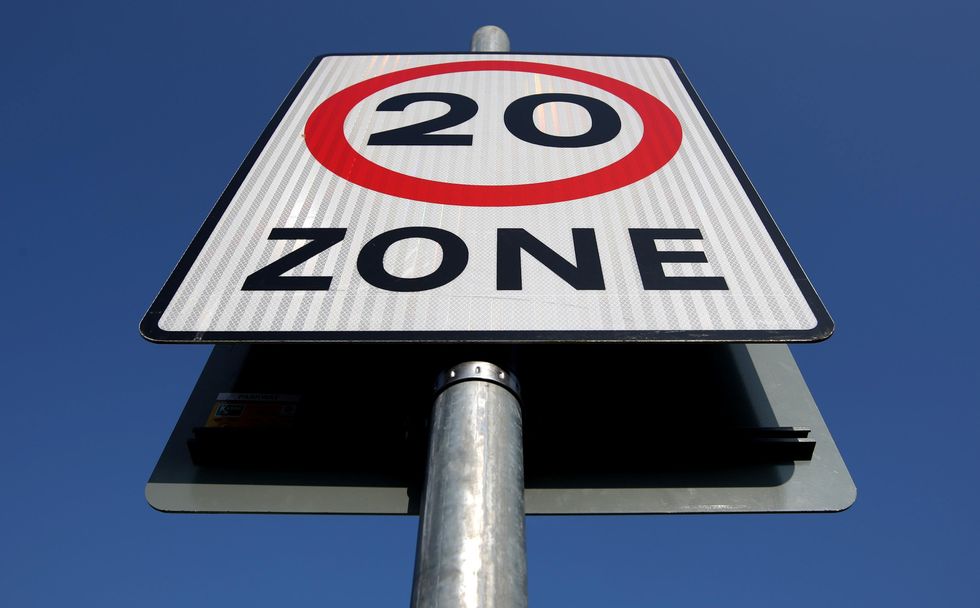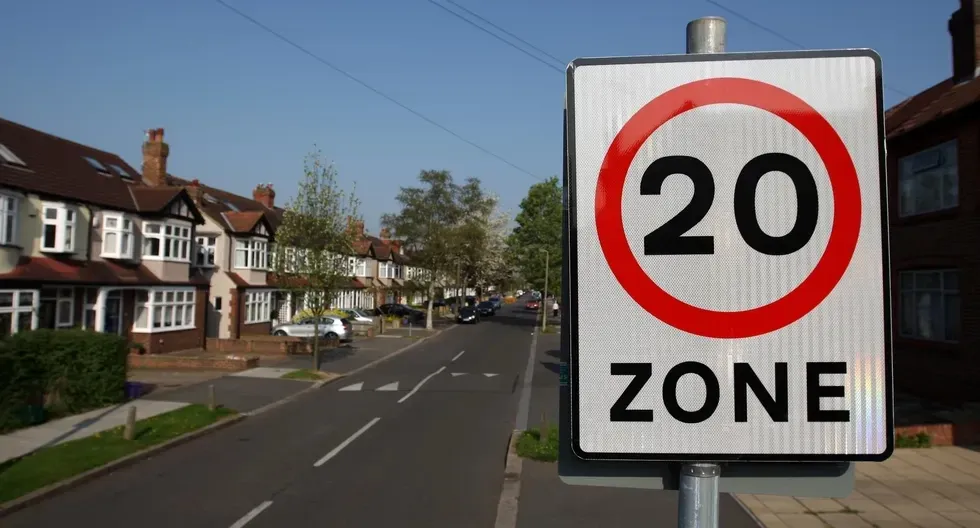Communities across the East Midlands are set to gain more power over implementing 20mph speed zones in their neighbourhoods, following a landmark decision by the county council.
The new approach, approved by Lincolnshire County Council on Friday, will make it easier for residents to request reduced speed limits in residential and built-up areas.
Under the changes, communities will have a more direct route to approach the council about establishing 20mph zones where they feel they are needed.
The move marks a significant shift from the previous system, where requests to lower speed limits typically had to be made through local councillors by schools, individuals or parish councils.
Do you have a story you’d like to share? Get in touch by emailing[email protected]

Motorists can be fined £100 for driving over the 20mph limit
PA
As part of the approved changes, existing 20mph advisory speed limits outside schools across Lincolnshire will become legally enforceable.
Independent Councillor Richard Cleaver, who introduced the motion, said the new system would be “easier and more open and transparent.”
Now the council said it will begin developing a clear policy outlining the criteria for assessing community requests for 20mph zones.
But Councillor Richard Davies, highways portfolio holder, emphasised that any actions would need to be “evidence-based” and that “taxpayers’ money needs to be targeted where it’s most needed.”
He added at the council meeting that solutions might include “lowering the speed limit or other things, like educating motorists.”
The proposals will undergo further scrutiny before any policy changes are implemented. Cleaver did note that the new approach would not mirror Wales’s controversial blanket reduction of speed limits.
“This is about empowering our local communities,” he said. “This is not about imposing a top-down, one-size-fits-all policy on them, and it’s not about enforcing 20mph speed limits where communities don’t want them.”
He stressed the focus was on making residents and their children feel safer on streets when walking and cycling.
The move differs significantly from Wales’s approach, which caused controversy by implementing a nationwide reduction from 30mph to 20mph in built-up areas.Instead, Lincolnshire’s approach will focus on community-led requests, with changes made to existing policy rather than implementing entirely new regulations.
Davies added that the changes could involve “lowering the speed limit, or it could be other things, like educating motorists”.
But the Royal Society for the Prevention of Accidents has voiced strong support for the council’s new approach to 20mph zones.
Caitlin Taylor, road safety manager for the charity, told the BBC that reducing speed limits to 20mph “has been shown to significantly lower the risk and severity of accidents.”
LATEST DEVELOPMENTS:
- Drivers condemn two-tier parking levy in tourist town as visitors get slapped with ‘unreasonable’ price hikes
- Motorists warned of busiest Christmas travel period in a decade as millions hit the roads – ‘Extra caution’
- Changing electric vehicle targets could be ‘fatal’ and cause thousands of jobs to be lost – ‘UK risks losing out!’
 20mph speed limits form part of broader transport measures by the council to improve the regionPA
20mph speed limits form part of broader transport measures by the council to improve the regionPAOfficial council documents stated: “We believe that existing 20mph advisory limits outside schools should be made mandatory and enforceable. That a new blanket 20mph policy with measures imposed automatically county-wide is unnecessary and would be inappropriate.
“That communities, parish, and town councils, should be empowered,through their county council division member, to request 20mph zones where they believe these would be appropriate in their areas, and these requests should be assessed against a set of criteria clearly set out in the council’s Speed Limit Policy.”